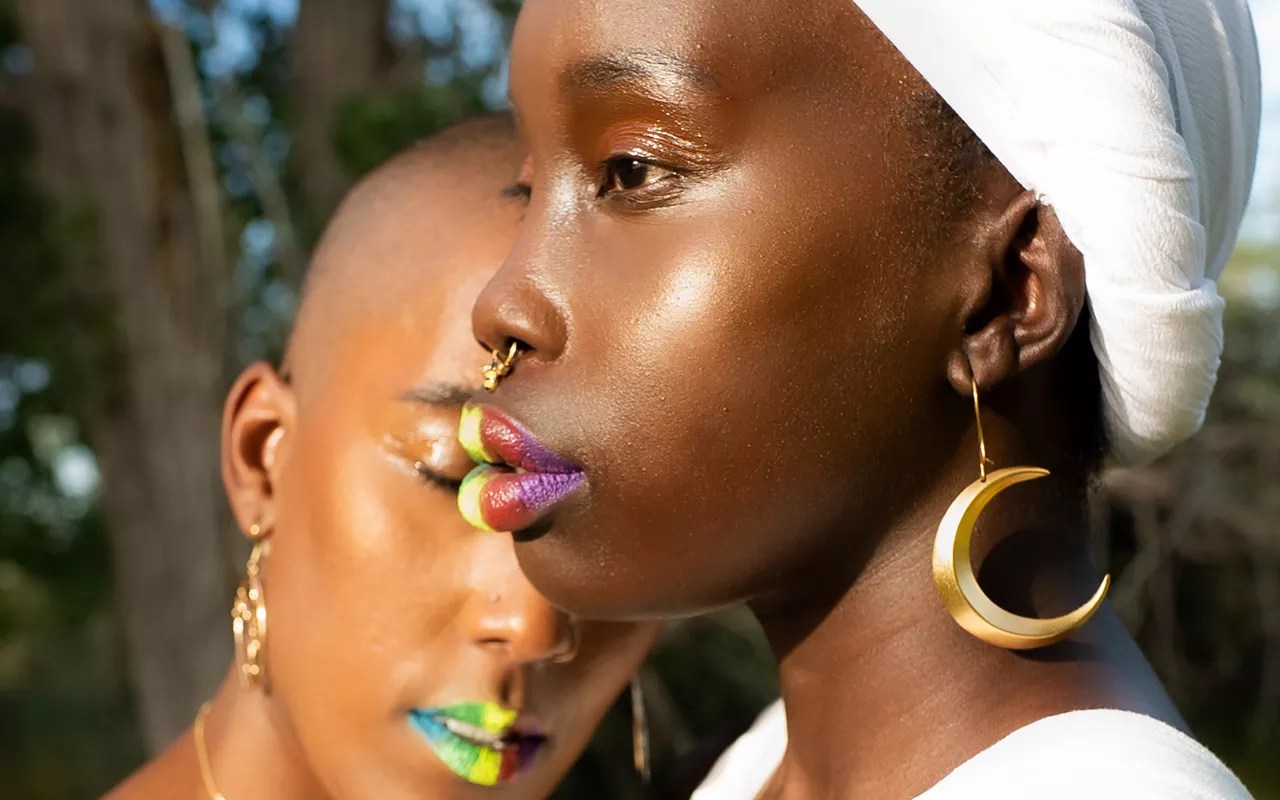
Eboni Boneé Coleman of EB PIXS

Audio By Carbonatix
The highlight of the inaugural Black Pride Colorado festivities last June was the Strange Fruit of Black Excellence Gala at the Denver Botanic Gardens. Attendees, decked out in black-tie attire, rejoiced in the culmination of the young group’s efforts to create an inclusive and safe space where queer and trans people of color could truly celebrate their full selves. All four official Black Pride Colorado events – the gala, a Black drag showcase, a gospel brunch and a happy hour at the Museum of Contemporary Art – had sold out; organizers had even added a second round of tickets for the gala, which honored the work of Black community activists such as Nikki Swarn of 104.7/The Drop 303.
But suddenly, the gala was interrupted by an intruder who waltzed past registration and started to help himself to the open bar. “This white older gentleman came in, because he was at the Botanic Gardens – and because he’s a white older gentleman, he’s just going to come in,” recalls Dr. tara jae, a psychotherapist and co-founder of Black Pride Colorado. “He doesn’t give a fuck what the event is, he’s just going to come in and start eating our food and drinking our drinks.
“It’s in those moments where it’s like, ‘Oh, you think you just have the right to come in here and take over, because that’s what you are taught, and that’s also what society enables.’ Well, not in this space.”
Fortunately, the Denver Dyke March was on hand to provide security, and members quickly escorted the man out over his protests. But for the founders of Black Pride Colorado, the incident underscored why they’d created the organization in the first place.
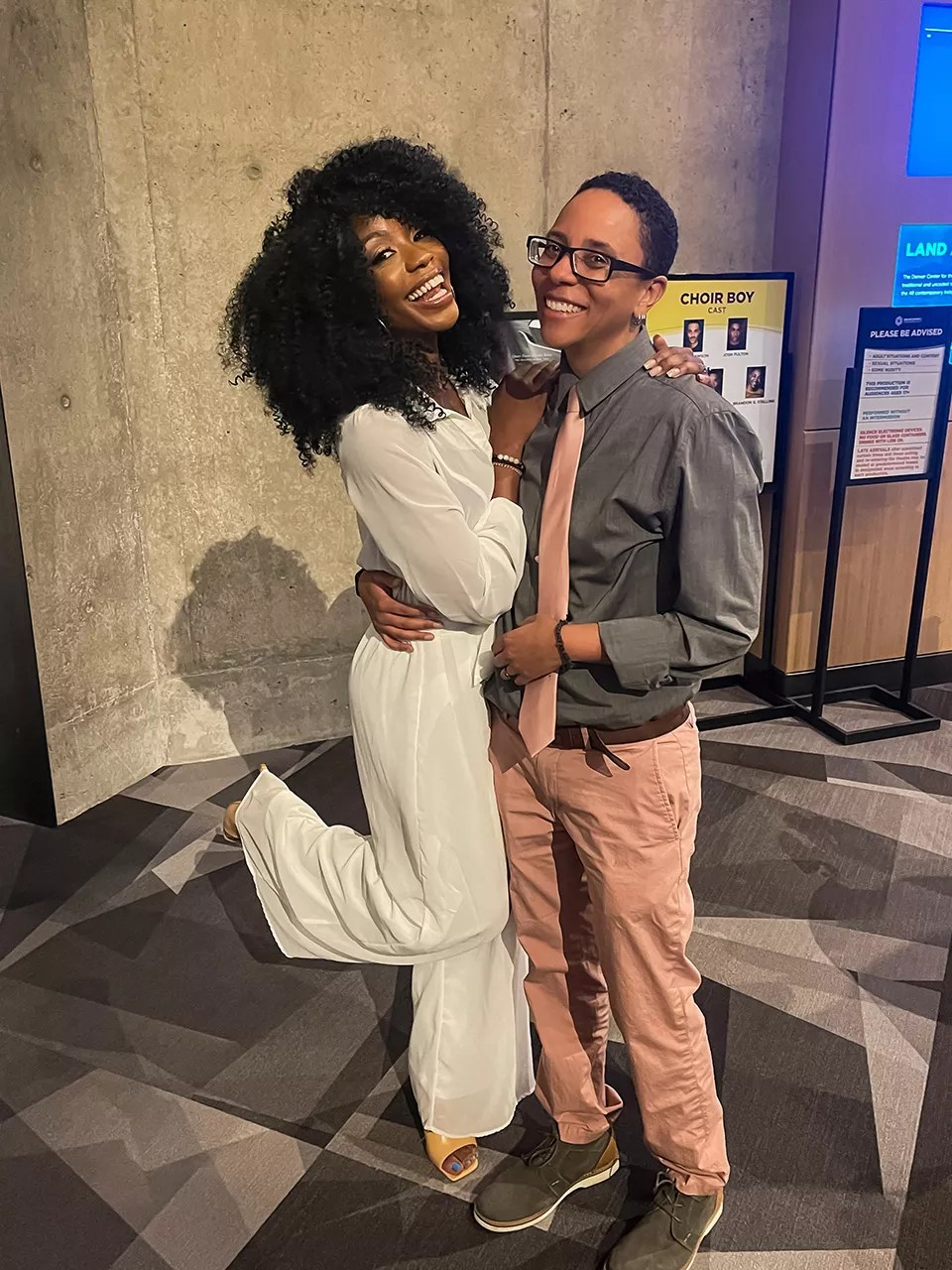
Black Pride Colorado co-creator Eboni Boneé Coleman (left) and co-founder Dr. tara jae.
Eboni Boneé Coleman of EB PIXS
The first Black Pride event was held in Washington, D.C., on May 25, 1991, as a way to gather the Black queer community for Memorial Day festivities and also HIV/AIDS education; the movement grew from there. Today there are at least thirty Black Pride celebrations around the world every year, all united under the Center of Black Equity. Black Prides have become essential, according to the CBE website, because “attending events and seeing people who look like oneself with many of the same shared experiences contributes to building stronger, healthier LGBT communities, and is an effective way to combat homophobia and stigma in the Black community and racism in the greater LGBT community.”
Along with drag performer/activist Tyrell Rae (known as Miss Zarah in drag), jae founded Black Pride Colorado because of a growing frustration with the way Black queer people have historically been excluded from both Juneteenth and Pride celebrations. “The reason we had to do Black Pride is because Juneteenth doesn’t necessarily want to incorporate or make space for us,” says jae.
June 19, or Juneteenth, marks the day in 1865 when Black people in Texas finally learned of their own freedom, two years after the Emancipation Proclamation was signed. Although it became a national holiday in 2021, for decades its observation was tied to the Black church.
Eboni Boneé Coleman, a Denver native and Black Pride Colorado team member, is working on a photo series exploring the relationship between the Black queer community and the Black church. In her interviews, she found that while growing up, Black queer people often found themselves forced to choose between their sexuality and their spirituality. Even though many modern Black spiritual leaders acknowledge that homophobia and transphobia directly contradict the church’s message of love and forgiveness, alternative spiritual organizations have emerged.
Like Juneteenth, LGBTQ+ Pride celebrations have not always been a safe environment for queer and trans people of color, according to Black Pride Colorado leaders. “We have Black Pride Colorado, and then we have Pride. Why is that? That dynamic is there because Pride – and many Black Prides across the nation also call it White Pride – has failed to address the issues and needs that Black people and people of color have amongst the LGBTQ+ community,” says Boneé Coleman.
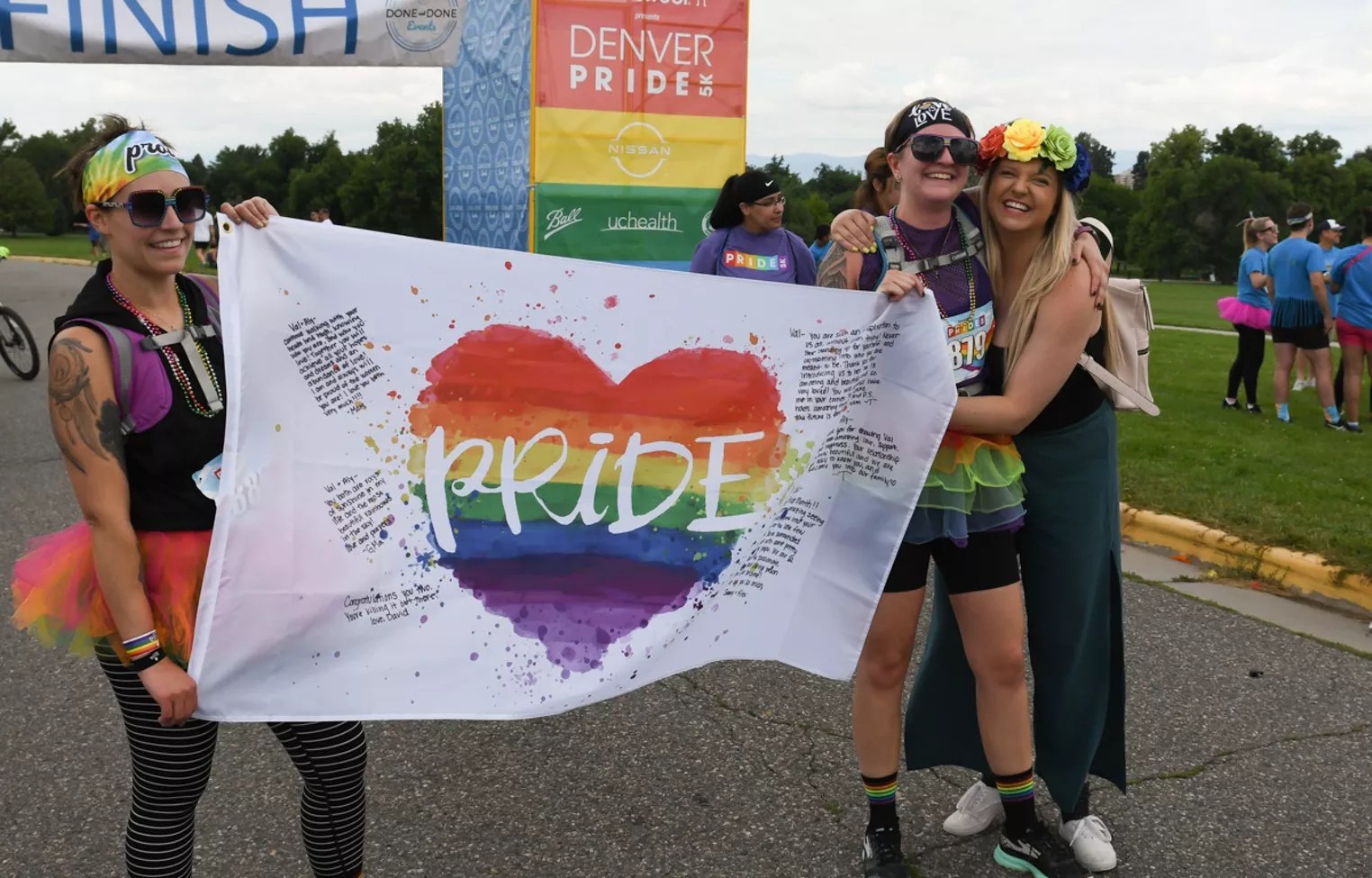
Denver’s 2021 Pride run.
Miles Chrisinger
“There’s lots of queer spaces here, but a lot of Black and Brown queer folks don’t feel comfortable going to those spaces,” adds Rae. “So it was important for us to be like, ‘These spaces are for us, too, and we have just as much right as anyone else to take up these spaces.’ Because if it wasn’t for Black people, we wouldn’t have the rights that we have now as queer people.”
Marsha P. Johnson, Stormé DeLarverie, Sylvia Rivera and Miss Major Griffin-Gracy, trans women of color, all played a part in the seminal Stonewall Riots in New York City, the forerunner of Pride. On June 28, 1969, police officers raided the Stonewall Inn, a prominent gay bar located in Greenwich Village that was considered a haven for LGBTQ+ people. Thirteen people were arrested, many of them charged with violating New York’s “gender-appropriate clothing statute.” Rather than dispersing, angry patrons gathered outside the bar, watching as police grew increasingly violent with the crowd. Onlookers began to throw bottles, pennies, cobblestones and (perhaps most famously) bricks at the police, and the resulting riot lasted for five days. Johnson and Rivera went on to found the Street Transvestite (now Transgender) Action Revolutionaries, creating a space dedicated to the trans women of color who were pushed to the outskirts of mainstream LGBTQ+ activism.
Violence against gender-non-conforming people of color spurred queer-rights movements in Colorado, as well. In 1977, Black drag queen Eugene “Tracy” Levi was killed by a Denver police officer who tried to arrest Levi for prostitution; his murder helped inspire the June Seventh Committee, a response to police brutality against the queer community. Using Levi’s death as a case study, committee members demanded that a civilian oversight board be created to end police entrapment, harassment and violence.
Ten months after Levi’s murder, Irene De Soto, a trans woman of color, was killed by a young patrolman under similar circumstances: The officer attempted to arrest De Soto for prostitution, and, following a chase, shot her when she pulled out a pair of scissors.
Monique De Marco, a friend of the victim who also identified as a trans woman, helped form the Transsexual, Lesbian, and Gay Defense Coalition in her honor. Three days after De Soto’s death, the coalition led Denver’s first organized protest against police violence toward transgender people, with over 200 people marching past the sites of the De Soto and Levi murders.
More than four decades later, Black Pride Colorado was organized to finish the work started generations ago by queer and trans people of color.
Soon after moving to Colorado from New York, in 2017 jae founded YouthSeen, a nonprofit organization that provides mental health resources for queer kids of color across the state, as well as support groups and summer camps; it also offers inclusivity training for other organizations. New York already had a Black Pride celebration, called Harlem Pride, and after finding no similar organization here, jae and others decided to create one.
The Black Pride Colorado team organized the inaugural Black Pride festivities in a matter of weeks. While many Black Pride events follow the original 1991 model, Black Pride Colorado created its own structure, offering multiple days of events instead of concentrating them on a single date (usually Juneteenth) and becoming a 501(c)(3) organization, working through YouthSeen.
During its first six months, Black Pride Colorado events ranging from balls to drag shows to panel discussions drew over 2,000 attendees and confirmed that the community was ready for a new version of Pride. “Last year was just phenomenal. The biggest thing we got after that weekend was, ‘I didn’t know I needed this,'” jae remembers.
Adds Rae: “It was eye-opening, and comforting too, to see all these queer people of color coming together, because we didn’t have it before.”
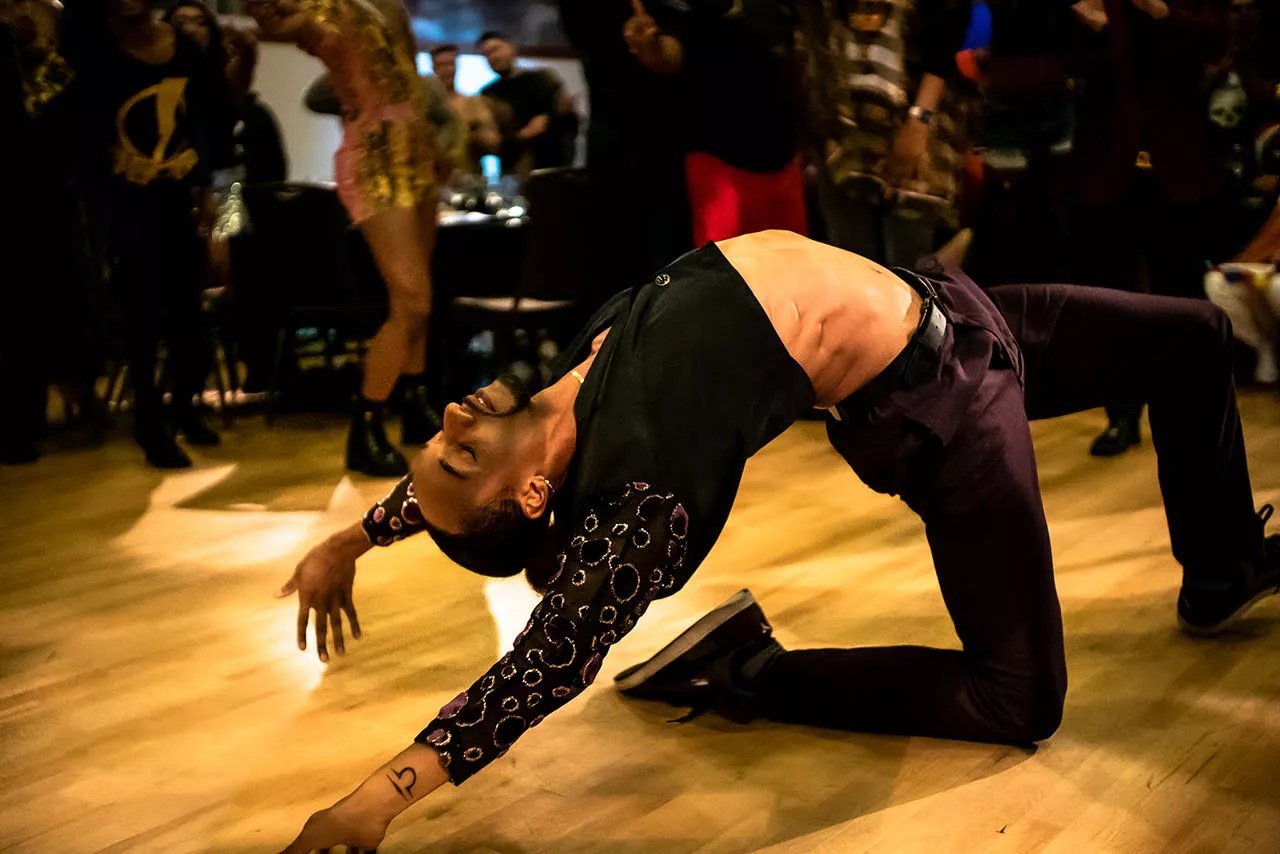
Fatha Davry “Glamm” LaBeija at last year’s Black Fantasy Ball.
Eboni Boneé Coleman of EB PIXS
But after that early success, Black Pride Colorado hit some bumps.
While the group continued to offer programming, organizers saw a decline in support after the first round of events. “Throwing a bunch of money during June doesn’t help, because it’s not sustainable. There’s an influx of money that comes in June, and then we’re supposed to live off that for the rest of the year. That is not helpful,” says jae.
Even recognition didn’t help. In December, the Denver Agency for Human Rights and Community Partnerships awarded Black Pride Colorado a 2021 Mayor’s Diversity and Inclusion Award, honoring the new group along with nine other local activists and organizations for their dedication to inclusion, acceptance and creating opportunities. Black Pride Colorado had been nominated for the award by Dana Juniel of the Matthew Shepard Foundation, and while it was an unexpected vote of confidence in the group’s mission, there was no honorarium attached.
And when it came time to start planning Black Pride Colorado events, organizers were disappointed to find that enthusiasm had waned. “We had a lot of people who were like, ‘Yeah we want to support!’ But then they didn’t come through with that support,” jae recalls.
“It was eye-opening, and comforting too, to see all these queer people of color coming together, because we didn’t have it before.”
Much of Black Pride Colorado’s programming revolves around social gatherings designed to unite, educate and empower the queer Black community; these events can range from workshops on how trans individuals can legally change their names to shows that highlight Black queer artists. But while they play a vital role in supporting the community, potential sponsors may not recognize their importance. Says jae: “I definitely had a foundation say, ‘We don’t want to support social events.’ You do know that these social events are suicide prevention, right? These gatherings allow us to connect. We are breaking bread and making sure that we’re seeing other people in the community. There is a larger thing happening here than just a social event. Don’t you think that we as a community know how to heal ourselves? That’s what we’ve been doing for over 400 years, because we could not rely on anyone else.”
Black Pride Colorado’s leaders kept encountering a profound misunderstanding of why their group matters. Recalls Jae: “I was meeting with a potential donor, and I was saying, ‘Just because George Floyd happened and there was a moment where everybody threw money at us, we’re still hurting.’ This person literally sat there and was like, ‘Well, I thought after George Floyd, things were equal.’ I said, ‘Imagine that.’ But that also tells me the level of privilege you have.”
Wonders Boneé Coleman: “Why do we have to continue defending ourselves and our programming when it is out there for everyone to see? People who have no programming, or just have word of mouth, they can walk into a space and it’s no problem. You’re not going to be asked half of the questions that we are, just to show that we’re serious.”
Even when they got an audience with funders, they typically received a fraction of what they’d proposed. “When we’re asking for funding, we tell them exactly how much it’s going to be, and half the time we get like a quarter of what we’re asking for, and we’re expected to work off of that,” says jae.

Black Pride co-founder Tyrell Rae (left, in drag as Miss Zarah) and Juiccy Misdemeanor at the 2021 Strange Fruit of Black Excellence gala.
Eboni Boneé Coleman of EB PIXS
Their struggle stands in stark contrast to the success of The Center, Colorado’s leading gay rights organization, which received $339,500 in government grants and contracts alone in 2020.
But then again, The Center has been around since 1976, and went through its own struggles in its early years. Today it is a go-to for big corporate partners like Coors Light, Xfinity, Wells Fargo and Walmart, while new organizations such as Black Pride Colorado tend to attract smaller partners like Rocky Mountain Public Media, Connect for Health Colorado and local queer bars. But The Center is also a supporter, as is the Denver Botanic Gardens.
During The Center’s 2020 Denver PrideFest, which was entirely digital, the organization brought in $455,261, for a profit of almost $100,000. According to CEO Rex Fuller, in a normal year with in-person events, PrideFest would bring in roughly double that.
Black Pride Colorado’s concern with large organizations like The Center is not their lack of programming for queer people of color. The problem is that much of that programming is still designed and directed by white people, because there are so few people of color in decision-making roles within these more mainstream organizations. “It’s almost as if all those voices are, even when they’re there, they’re so passive. You can barely hear them; they’re almost like whispers,” says Boneé Coleman.
“Currently, we do not have any Black queer members of staff leadership,” Fuller acknowledges. “We have a Black member on our board of directors, who is currently on leave due to health concerns. We are working to actively recruit staff members and boardmembers from communities of color.” While he contends that all staff members have equal opportunity for professional development, nearly all of the positions of power at The Center are filled by white people. And Denver PrideFest is organized by a predominantly white group.
Even when large foundations work directly with Black Pride Colorado, they don’t always compensate the organization or acknowledge its contributions. “There’s been a couple situations that we’ve been dealing with where these large organizations that are very well-funded are, one, not doing their research, and, two, looking to us to give them that information, research, images, all of the emotional labor, and then say, ‘Okay, we got it from here!'” says jae, who adds that multimillion-dollar organizations, with publicly available financial records showing their expenditures, have told Black Pride Colorado that they “don’t have the budget” to pay the group for its contributions.
“Compensation is not just monetary,” jae notes. “How are we collaborating? How are we partnering? These bigger organizations don’t have a full understanding of what that means.”
Boneé Coleman sees this as a continuation of the historical pattern in which Black queer people, particularly queer Black women, femmes and nonbinary folks, are encouraged to do the important labor of activism, but then are denied the recognition, compensation and rest that they deserve. “In many cases, we are seen as the worker bees – which in general leaves Black women and nonbinary folks in a space where their voices are still unheard, and they are overworked and underpaid,” she notes.
When Black women and nonbinary folks voice such concerns, the organizations that they’re addressing tend to get defensive rather than being receptive to the feedback. But being open to difficult and uncomfortable discussions is the only way to create meaningful, lasting change, according to jae: “In order for us to heal as a community, we need to be able to have these conversations, and we’re still cool. In this moment, yeah, I’m hurt, and I’m putting all these things out there, but when I leave this, we’re cool. Most people don’t understand that. When it really comes to Denver and how we’re doing things, we just need to have bigger conversations.”
“When it really comes to Denver and how we’re doing things, we just need to have bigger conversations.”
The onus is on the white queer community to acknowledge the contributions of Black queer activists, and to let them continue to guide queer liberation as they have throughout history, including how Pride is celebrated today, says Boneé Coleman, adding that otherwise, “it’s a lack of historical respect.”
“Pride started off as resistance,” jae points out. “Pride started off as a riot. So I think we need to reprioritize how the queer community engages with each other.”
In the spaces created by Black Pride Colorado, Black queer culture is the norm, not an exception or a spectacle. The group offers Black queer people the rare chance to relax and unwind without worrying about presenting themselves in a way that accommodates white people. “When we’re around other Black people, then it’s comfortable,” jae notes. “However, we are constantly code-switching and working around [white people]. Allow for us to just come in and not have to speak, and let our energy do the talking.” In this space, Black queer people can take a break from constantly fighting for survival and understanding, because it’s a space they have already won.
And despite all of the challenges Black Pride Colorado has faced putting on its 2022 celebrations, it’s holding on to its place. “It’s not about you,” jae advises. “It’s about folks of color – and, more specifically in this space, Black queer folks. If you can’t put us first, don’t bother coming.”
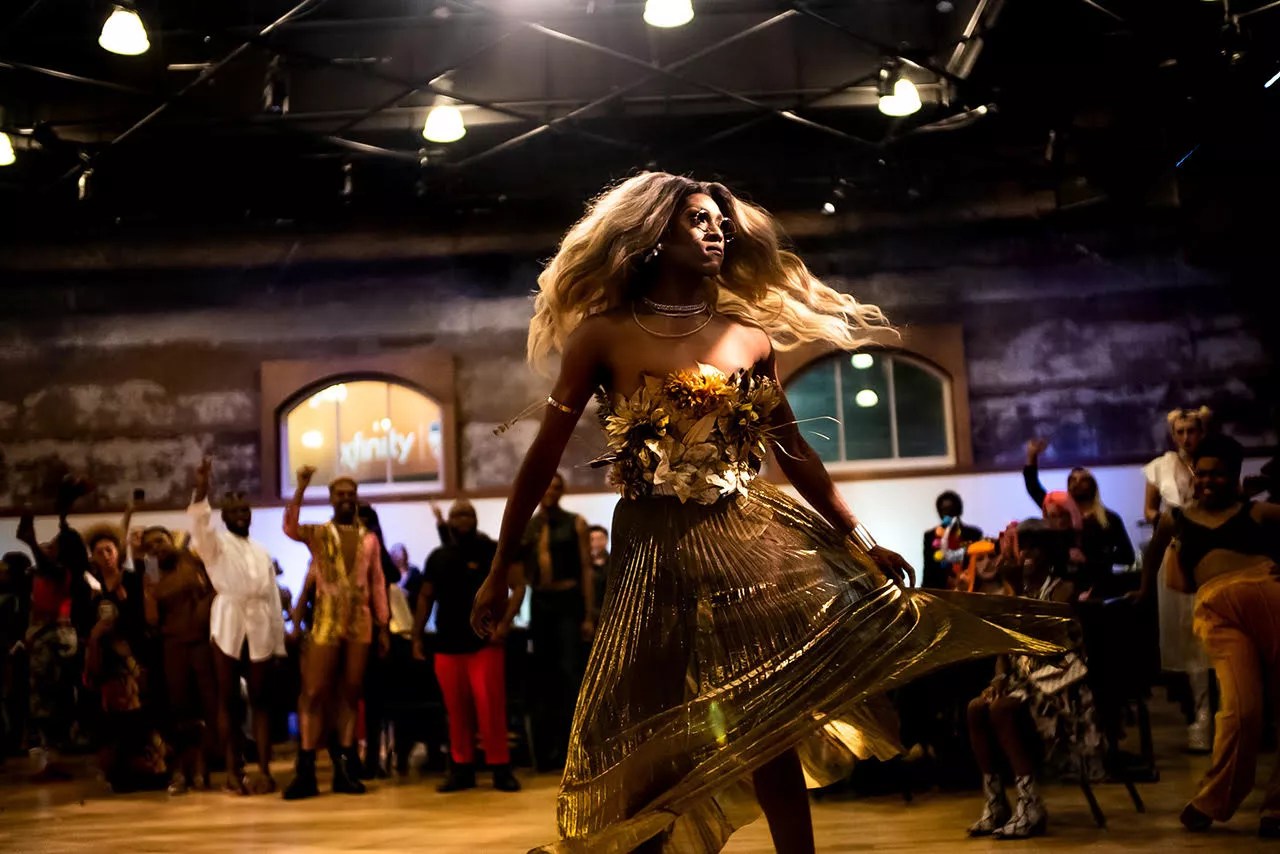
Black Pride co-creator Juiccy Misdemeanor represents the House of LaBeija at the Black Fantasy Ball.
Eboni Boneé Coleman of EB PIXS
Black Pride Colorado has planned eight events over eleven days for Pride 2022, including the second annual gala, a family-friendly queer cookout on Juneteenth, a party in partnership with Out Front magazine, and a talk with author Nic Stone at Rocky Mountain PBS.
And if you do come to its events, be prepared to educate yourself. “We are not lacking in this information anymore,” jae concludes. “Pick up your phone, your tablet, whatever it is, and Google it. But really dig in, go into those references, and do the work. Don’t use the energy of folks of color to get your education. We don’t owe you anything.”
For a full list of Black Pride 2022 events, visit blackpridedenver.com.